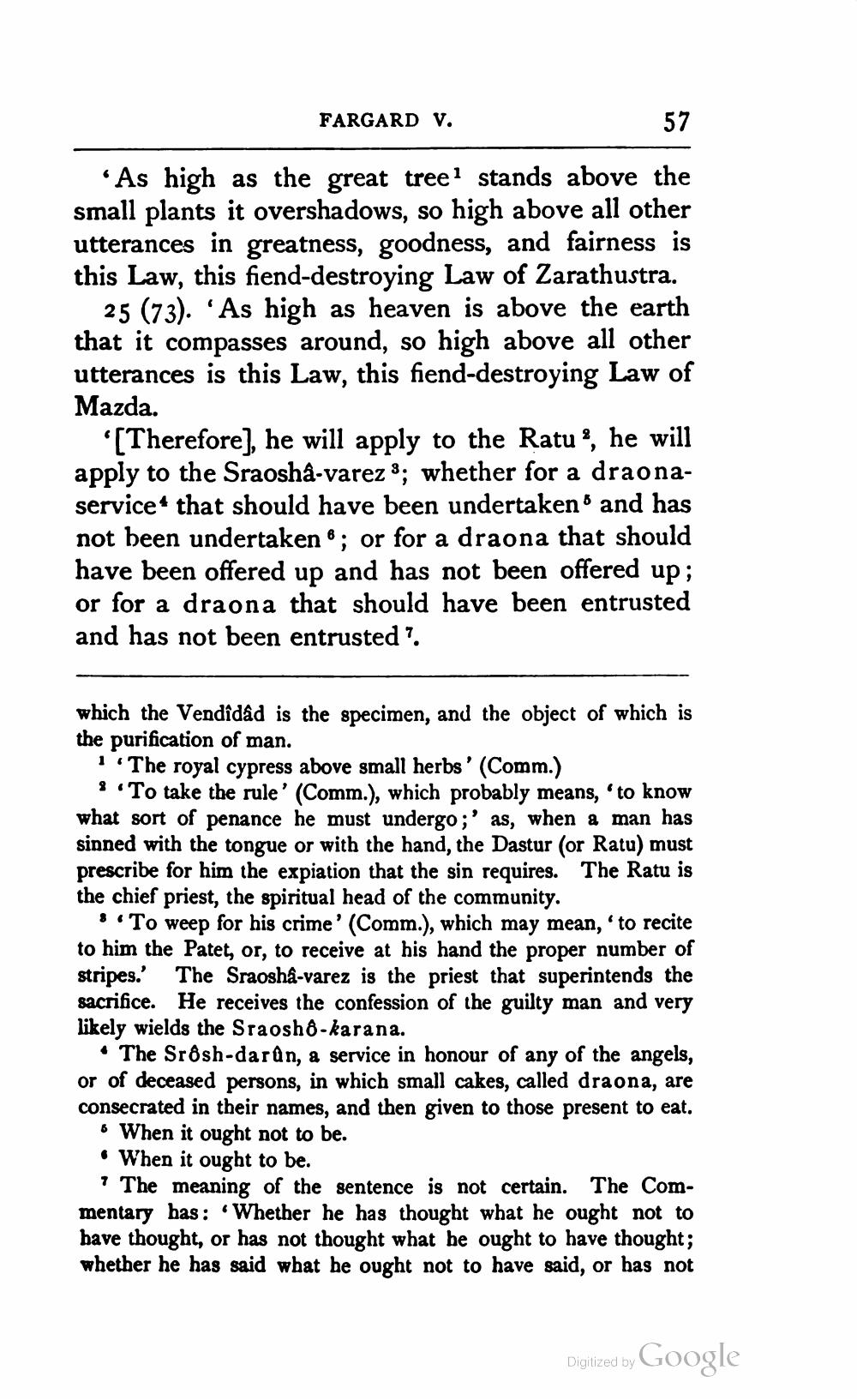________________
FARGARD V.
57
'As high as the great tree1 stands above the small plants it overshadows, so high above all other utterances in greatness, goodness, and fairness is this Law, this fiend-destroying Law of Zarathustra.
·
25 (73). As high as heaven is above the earth that it compasses around, so high above all other utterances is this Law, this fiend-destroying Law of Mazda.
'[Therefore], he will apply to the Ratu, he will apply to the Sraoshâ-varez ; whether for a draonaservice that should have been undertaken and has not been undertaken; or for a draona that should have been offered up and has not been offered up; or for a draona that should have been entrusted and has not been entrusted".
which the Vendîdâd is the specimen, and the object of which is the purification of man.
1
'The royal cypress above small herbs' (Comm.)
To take the rule' (Comm.), which probably means, 'to know what sort of penance he must undergo;' as, when a man has sinned with the tongue or with the hand, the Dastur (or Ratu) must prescribe for him the expiation that the sin requires. The Ratu is the chief priest, the spiritual head of the community.
To weep for his crime' (Comm.), which may mean, 'to recite to him the Patet, or, to receive at his hand the proper number of stripes.' The Sraoshâ-varez is the priest that superintends the sacrifice. He receives the confession of the guilty man and very likely wields the Sraoshô-karana.
• The Srôsh-darûn, a service in honour of any of the angels, or of deceased persons, in which small cakes, called draona, are consecrated in their names, and then given to those present to eat.
When it ought not to be.
• When it ought to be.
'The meaning of the sentence is not certain. The Commentary has: 'Whether he has thought what he ought not to have thought, or has not thought what he ought to have thought; whether he has said what he ought not to have said, or has not
Digitized by
Google




